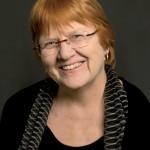Lawyer-Client Relationships: Healthy Or Tinder?
One of the most challenging aspects of running a law firm or law department is the classic problem of all buyers and sellers: how do you get and sustain a good deal?
 One of the most challenging aspects of running a law firm or law department is the classic problem of all buyers and sellers: how do you get and sustain a good deal? On Tuesday, Buying Legal Council’s “Professional Sourcing and Management of Legal Services” conference addressed that dilemma—and the answers, which include understanding the dating site Tinder and diving into analytics.
One of the most challenging aspects of running a law firm or law department is the classic problem of all buyers and sellers: how do you get and sustain a good deal? On Tuesday, Buying Legal Council’s “Professional Sourcing and Management of Legal Services” conference addressed that dilemma—and the answers, which include understanding the dating site Tinder and diving into analytics.
The day-long event, held at Proskauer’s Times Square office in New York City, included a morning panel called “TED-style Talks: Managing (Supplier) Relationships.”
Mark Cohen, founder and CEO of Legal Mosaic, went first, and had the audience laughing from the start when he compared the law firm/in-house dynamic to how people answer the “Relationship Status” question on Facebook. “Legal delivery has gone from ‘In a Relationship’ to ‘It’s complicated,'” he said.

Navigating Financial Success by Avoiding Common Pitfalls and Maximizing Firm Performance
In the past, buying decisions were made on a golf course, said Cohen, who is based in the Washington, D.C. area. Today’s market is like a bazaar with lots of buyers and sellers, he said.
Beauty contests where corporate counsel would “round up the usual suspects” have been replaced with Requests for Proposals that get longer and longer, Cohen noted. The criteria have expanded, as buyers now consider sellers’ legal expertise, technology, and business processes.
“It’s not just about legal expertise anymore,” said Cohen. “It is a mosaic and a work in progress. One size doesn’t fit all.”
More Dating Lessons
Sponsored

Legal AI: 3 Steps Law Firms Should Take Now

Early Adopters Of Legal AI Gaining Competitive Edge In Marketplace

The Business Case For AI At Your Law Firm


Early Adopters Of Legal AI Gaining Competitive Edge In Marketplace
The dating theme escalated when Joseph “Joe” Leccese, chairman of Proskauer and co-chair of its sports law practice, took his turn and posed the question, “Is there any value to a ‘real’ relationship” with the buyer? And if there is a relationship, is it healthy?”
“You say relationship, but we feel Tinder,” he said, referring to the dating app with a reputation for facilitating hook-ups. “A relationship is the best alternative fee arrangement; a short-term deal of two to three years is not a relationship.”
“A healthy relationship is when two people develop a connection based on mutual respect, trust, honesty, support, fairness-equality, separate identities, good communication, and a sense of playfulness/fondness,” said Leccese, sourcing the list to the Hall Health Center at the University of Washington.
Leccese listed the complaints about Biglaw from would-be buyers:
- Firms won’t change.
- They are not interested in a partnership.
- The can’t deliver “value.”
- Biglaw is “so 2012.”
Sponsored

Is The Future Of Law Distributed? Lessons From The Tech Adoption Curve

Navigating Financial Success by Avoiding Common Pitfalls and Maximizing Firm Performance
Biglaw needs to embrace change, but how that will happen will depend on whether there is a real relationship, not just a transaction, he added.
Leccese also acknowledged that not everything is high end and that it can be challenging to measure value. There are always emergencies. Trust is crucial, he said, and “when disaster strikes, you want a relationship.”
“We need to bring a little more balance,” said Leccese. “It’s in everybody’s interest.”
Leccese turned the discussion to his own firm, noting that Proskauer has changed its delivery model and its hiring and training protocols. The firm is getting leaner. Entry-level associates now go through intense training—including technology and business concepts—over six years. “By the time they complete their training, they’ve got the equivalent of a mini-MBA,” he said.
Assumptions
Next up was Danny Ertel, founder and partner at Vantage Partners, who focused on “the assumptions we make.” The Boston company is a spin-off of the Harvard Negotiation Project.
The buyer/seller process “is not a zero-sum game unless we make it,” said Ertel. Participants need to view the process as if it were a game. Don’t assume that your opponent has to change first, he advised.
Ertel encouraged the audience to consider alternative options and “think outside the box” (a phrase that was ubiquitous throughout the conference). He also urged the audience to explore “preferred customer” programs.
Sophisticated Buyers
The final panel speaker was Michael Tal, co-founder and co-CEO of BusyLamp, technology that monitors legal spending. Based in Frankfurt am Main, Germany, Tal previously was a senior associate at White & Case and an associate at Skadden, Arps, Slate, Meagher & Flom.
Tal urged purchasers to “become sophisticated buyers and use metrics both for short-term issues and long.” It’s crucial to acknowledge outside counsel, he said. Spend time defining your scope and adjusting and leveraging the scope as the engagement continues, he said.
Tal stressed the importance of acknowledging work well done, citing a Massachusetts Institute of Technology study that showed that you get more for your buck if you just take the time to praise work done well.
His advice for law firms: Become a “partner” with your client early in the process. “Be more transparent, keep the client alerted to change, use metrics and communicate, give feedback. Results are what matter,” said Tal.
For both sides: Remember, commodity work is not bespoke work.
Other presentations included “Getting a Seat at the Table,” by Susan O’Brien, senior vice president at Bank of America, as well as two workshops and two case studies.
What’s Next
The conference was organized by Silvia Hodges Silverstein, executive director of Buying Legal Council, who presented highlights of an upcoming survey report. Asked what she sees as the top challenge for firms and in-house relationships, she said, “There still is a lot of work to be done on both sides. Procurement must continue to get better insight and data and conduct the right analyses to add value to legal.”
“Legal departments (including legal operations) are well advised to work with procurement on the business side of the law. Law firms need to embrace a different, more efficient, innovative way of delivering legal services, and be ready to engage with procurement,” said Silverstein.
The event drew 118 attendees, including 23 people in law firms and 65 client-side. Others were consultants, software vendors and suppliers. Sponsors included BusyLamp, UnitedLex, Prosperoware, Q3 Resources, Level 2 Legal Solutions, and FirmWise. Proskauer provided the venue.
Buying Legal Council will hold its next conference in London on May 9: “Alternative / Appropriate Fee Arrangements,” at Baker & McKenzie.
 Monica Bay is a Fellow at CodeX: The Stanford Center for Legal Informatics and a columnist for Above The Law. She also writes for Bloomberg BNA Big Law Business and serves as a special consultant to The Cowen Group. She is a member of the California Bar and is based in New York City (and can be frequently found at Yankee Stadium). Email: monicabay1@gmail.com. Twitter: @MonicaBay.
Monica Bay is a Fellow at CodeX: The Stanford Center for Legal Informatics and a columnist for Above The Law. She also writes for Bloomberg BNA Big Law Business and serves as a special consultant to The Cowen Group. She is a member of the California Bar and is based in New York City (and can be frequently found at Yankee Stadium). Email: monicabay1@gmail.com. Twitter: @MonicaBay.







